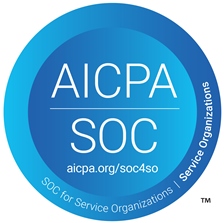Watch to Learn About Our
Content Services Platform
GRM’s content service platform is a complete solution for managing content,
file storage and workflows.
As more businesses invest in cloud storage, they realize right away that stand-alone consumer-grade cloud storage services are designed for home and consumer use, not for businesses with sophisticated workflows.
Access to specific files in cloud storage is important, but businesses also need to address four key challenges of content management, namely file security, compliance and governance, document versioning, and workflow management.

GRM’s content service platform is a complete solution for managing content,
file storage and workflows.

Why you should upgrade your cloud storage service provider.
While cloud storage companies claim to keep files secure, the challenges of governance and document versioning makes such cloud storage services completely outdated. What good are secure files if the files are outdated, the wrong versions of those files were saved, and the specific documents’ retention policies are not properly managed. And without workflow management, how will you know who edited the document last, who was responsible for reviewing them, which parties signed the documents, and how the documents made it past all the steps.
As a result, cloud storage is now being replaced by enterprise content management systems that are completely cloud-based. Yes, the ECM systems have integrated cloud storage, but all the other important aspects of document management are completely preserved.
Within the last two years, companies like GRM, have also integrated predictive analytics and machine learning into enterprise content management systems, creating the first-of-their kind Content Services Platforms. Now, not only are your files kept safe in cloud storage, documents properly managed, workflows maintained, but also all of your daily business processes and workflows have the opportunity to be reviewed and improved. In many cases, the built-in predictive analytics show how certain workflows can be completely automated.
Scalability is a critical factor that limits business’s use of cloud storage services.
While cloud storage allows you to store files and documents, scalability in modern business is linked to business process improvement and workflow automation. When you need to gain insight into how your business is running, how your employees are managing everyday tasks, how work is being completed, and which menial tasks need to be eliminated and which ones need to be improved, this is where content services platforms shine.
As soon as you log in to your administrative dashboard, you will have access to GRM’s predictive analytics software which will then let you take a critical look at your company’s daily workflows and recommend either automation of specific tasks, or process improvement. You can then edit appropriate workflows, saving your company countless hours and thousands of dollars. In effect, content services platforms pay for themselves.


Search by metadata and indexing by OCR, are not common features of most cloud storage services.
In stand-alone cloud storage systems, as you scan and upload documents to cloud storage, you have to manually input document names, fields, and metadata that will allow you to index your file according to your needs and policies. In effect, stand-alone cloud storage services are dumping grounds leaving all organization of those files completely up to the user. This can result in countless hours of time wasted on manual input and leaves too much room for errors.
A robust content services platform can accomplish this task completely in an automated fashion. In addition, a CSP platform, and even enterprise content management systems that do not have integrated predictive analytics and machine learning, will be able to perform Zonal OCR when creating new documents. That means when you are preparing new documents, fields like names, addresses, contact information, and other manual-entry tasks can be completely automated. Now you’d be able to index and search for documents much more effectively.
Many cloud storage services operate at 128-bit encryption and almost exclusively protect documents at storage only.
But what about securing documents when they’re being downloaded or uploaded, on your screen, and being shared with others. This is where 256-bit encryption is absolutely warranted.
Another part of cloud storage security is role-based – who can see the documents, when, and what they can do with the documents. While cloud storage services are inexpensive, this is usually one layer of protection that is not offered.
If role-based security is not up-to-date, you can face legal problems especially in industries like financial services, healthcare, human resources, law, or government. Role-based security also applies to all other parts of content management including governance, versioning, workflow management, and analytics. Each one of these components needs to be fully compliant.


You can reach out to us by phone at 888.907.9687, or fill out the form below